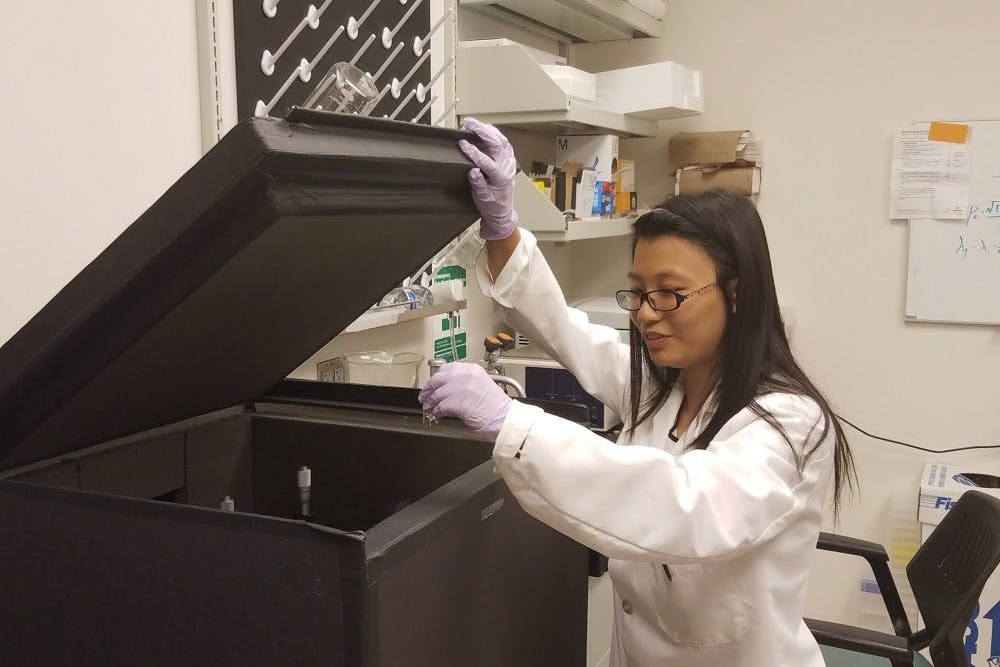ASU’s Biodesign Institute research team came up with a new way to quickly diagnose urinary tract infections, also known as UTIs, by using a light-scattering microscope.
UTIs are an infection in the urinary system typically involving the bladder and urethra and can be very painful. In a typical case, antibiotics are used and easily treat the infection.
However, in some cases, the bacteria causing the UTI is antibiotic-resistant, which delays patients from receiving the proper care they need.
New research from the Biodesign Institute aims to fix that problem.
Manni Mo, a doctoral candidate and graduate research assistant studying chemistry, said the research has helped eliminate the time used to detect bacteria in urine, also known as the culture time.
“We were aiming for a test that can find immediately the type of UTI at the doctor's (office),” Mo said. “We are using a light scattering microscopy. Just imagine when you don’t tidy up your room for a long time, there will be a lot of dust but usually you won’t see them until the morning when the sunshine shines through and then you can see the dust. This is kind of how this works.”
This project was done in collaboration with the Mayo Clinic's Phoenix campus, which provided the urinary samples the lab used to test for UTIs.
Dr. Thomas Grys, the director of microbiology at Mayo Clinic, said the hospital worked with ASU because of its microscopy and data processing technology, which he said applies well to UTIs.
“I direct the clinical labs and know the problems that need to be improved, and they have the technology to potentially do that," Grys said. "Our role is to produce actionable results as quickly as we can ... get the right answers faster and make sure the antibiotics prescribed are the right ones."
Grys said that even though UTIs are treated often, "it's one of the areas that has the most to improve on.”
The traditional culturing method for testing UTIs is effective but time consuming. According to the team's scientific paper, in some cases, prolonged delayed treatments from the waiting period can lead to complications and even death.
“For the vast majority it won’t make a difference," said Dr. Stefanie Schroeder, ASU's Health Services medical director. "For the small percentage who have something resistant, it could make a huge difference."
But, Schroeder said cost should be a factor for whether patients need the test.
"It depends on the cost-benefit," she said. "If it's the same cost as a urine dip, I’d use it for everyone. If it's a few hundred dollars to run this, I’d only use it in cases where I think they do not have a common UTI.”
Initial costs for this new testing has not yet been revealed. The project is in its infancy and still has time to grow.
“We’re one year into a five year grant," Grys said. "The roadmap is that we continue to fine-tune the approach, develop a prototype and test it in the lab. Science has to start with discovery, once we figure out what we need to do … over time we can decrease the operational cost.”
Reach the reporter at wmyskow@asu.edu and follow @wmyskow on Twitter.
Like The State Press on Facebook and follow @statepress on Twitter.

Wyatt Myskow is the project manager at The State Press, where he oversees enterprise stories for the publication. He also works at The Arizona Republic, where he covers the cities of Peoria and Surprise.




